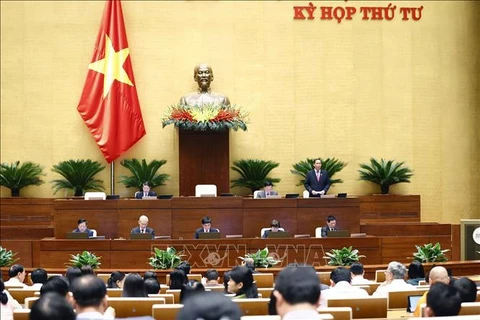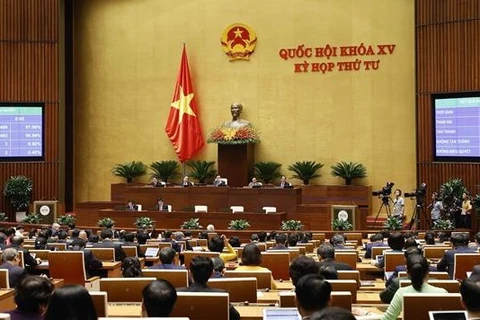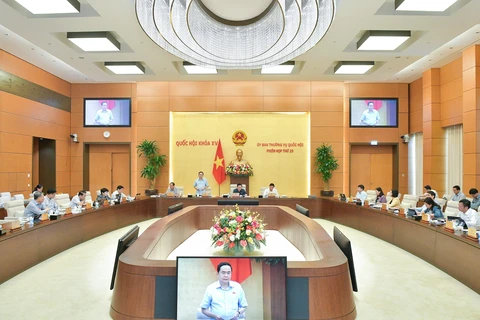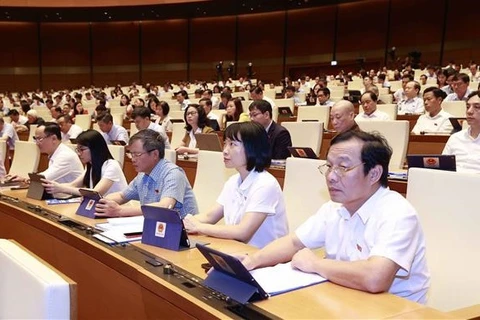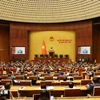 Vietnam will implement measures concertedly and drastically to promote thrift practice and wastefulness prevention this year. (Photo: baodautu.vn)
Vietnam will implement measures concertedly and drastically to promote thrift practice and wastefulness prevention this year. (Photo: baodautu.vn) The programme aims to maintain macro-economic stability, ensure major economic balances, and change both mindset and actions of officials, public servants, labourers, and people in thrift practice and wastefulness prevention.
The work will focus on realising tasks and solutions under the socio-economic recovery and development programme, striving to achieve the targets set by the National Assembly, with the national gross domestic product (GDP) expected to grow from 6-6.5%, and GDP per capital at around 4,700 – 4,730 USD.
Financial and budget disciplines will be tightened, and solutions rolled out drastically to avert revenue losses, transfer pricing and tax evasion, and control state budget overspending.
Openness, transparency, thrift practice, and wastefulness prevention must be ensured right from projection making to the allocation, management and use of the state budget, according to the master programme.
At the same time, Vietnam will accelerate the allocation and disbursement of public investment, and the funding for the socio-economic recovery and development programme, and national target programmes, while speeding up the implementation of key public, national projects.
The master programme also touches upon reviewing and perfecting documents stipulating the management and use of public assets; reforming and improving the operational efficiency of State businesses; and raising the efficiency of State capital at enterprises.
It emphasises that thrift practice and anti-wastefulness must be done in all areas in line with the Law on Thrift Practice and Wastefulness Prevention, and other relevant legal documents.
Specifically, in state budget management and use, fiscal - state budget disciplines will be tightened and state budget spending must match the projection approved by the legislature.
Meanwhile, the allocation of investments sourced from the state coffer must follow the Law on Public Investment and resolutions adopted by the NA and its Standing Committee, and violations and those that intend to hinder the work must be strictly handled.
Other tasks include effectively implementing the project on restructuring state businesses, focusing on groups and corporations; taking specific solutions to push ahead with equitisation and the divestment of state capital in enterprises; and stepping up personnel reduction./.
source
